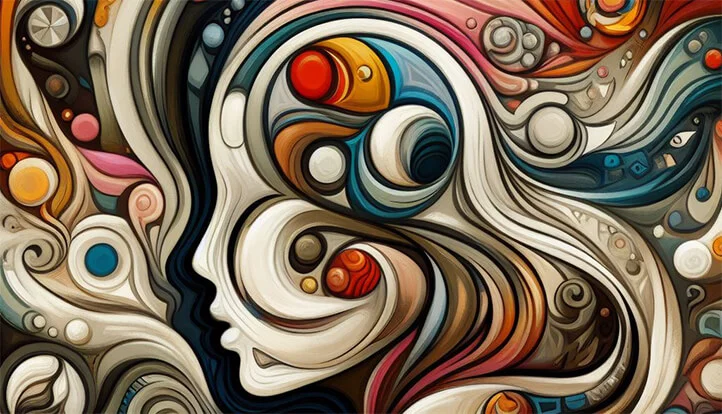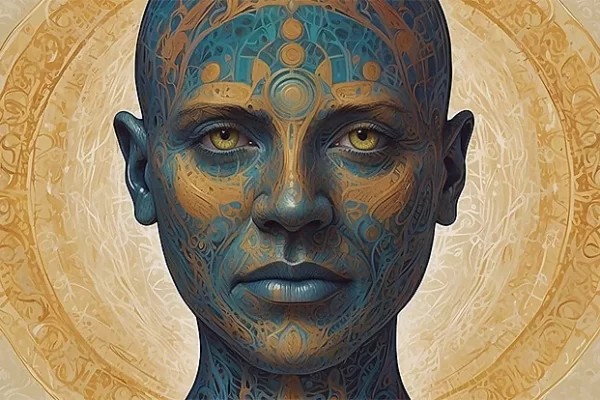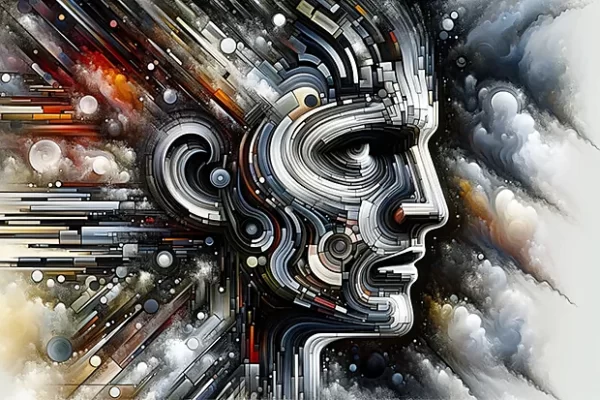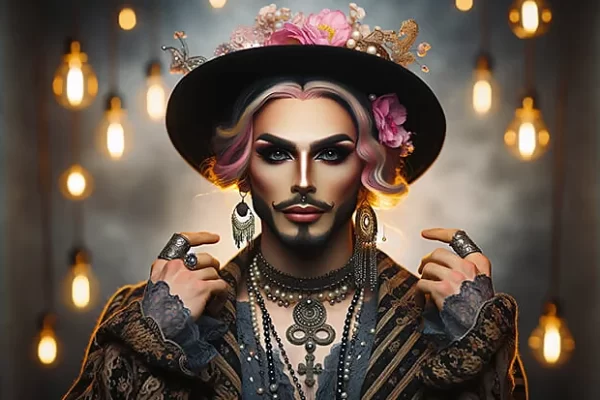Emotions are an integral part of the human experience, shaping our worldview and interactions with others. Positive emotions such as joy, love, and gratitude contribute to a sense of well-being and life satisfaction. On the other hand, negative emotions like anger, anxiety, or sadness can have a destructive impact on mental and physical health if […]
Survivor’s Guilt: The Psychological Drama of Modern Heroes
In critical moments, when we face traumatic events or life-threatening situations, the survival instinct takes over. However, for some people who have survived a tragedy, the struggle doesn’t end after the danger has passed. They may experience deep feelings of guilt, depression, and emotional difficulties, known as “survivor’s guilt.”
Transpersonal Psychology: Exploring the Otherworldly Nature of Man
Transpersonal psychology is a relatively new but rapidly developing field of psychology that focuses on studying states of consciousness that go beyond ordinary individual experience. It offers a holistic approach to understanding human nature, recognizing the importance of the spiritual dimension and the pursuit of self-actualization and transcendence. The goals of transpersonal psychology include expanding […]
How to Find Common Ground with a Teenager? Understanding Adolescent Psychology
Adolescence is one of the most challenging, contradictory, and critical stages in a person’s life. It is a time of rapid physical, hormonal, and psychological changes that deeply impact behavior, emotions, thinking, and the perception of the surrounding world. For parents, it is extremely important to understand the processes their children are going through during […]
The child doesn`t want to study, what to do? Psychologist’s advice to parents and guardians
The child doesn’t want to study, what to do: punish and force, or persuade and encourage? This is a question many parents of children of all ages ask. Lack of motivation to learn is a serious problem in modern education, directly affecting a child’s active participation in the learning process, their drive to achieve academic […]
Antisocial personality disorder: signs, symptoms, treatment
Antisocial personality disorder is characterized by a persistent disregard and lack of respect for the rights and feelings of others. Individuals with this disorder often exhibit aggressive or manipulative behavior and may act irresponsibly, ignoring social norms, rules, and obligations.
Between the Province and the Capital: The Provincial Complex in the Modern World
The Provincial Complex is a psychological state characterized by feelings of inferiority, insecurity, and self-doubt experienced by people who grew up or live in small towns or rural areas when comparing themselves to residents of large metropolises. This state can manifest in various aspects of life—from professional activities to personal relationships—affecting the perception of one’s […]
What is Transgenderism and Who are Transgenders in Simple Words
Transgenderism is a condition in which a person’s gender identity does not correspond to the biological sex assigned to them at birth. Transgender people may identify as men, women, or opt out of traditional gender categories, seeking a life that better reflects their internal sense of self.
Impostor Syndrome: Why Do We Underestimate Ourselves and How to Fix It?
Impostor syndrome is a psychological phenomenon where a person doubts their own achievements and talents, experiencing a constant fear of being accused of “fraud” despite clear evidence of their competence. People suffering from this syndrome often attribute their success to external factors, such as luck or the help of others, rather than their own efforts […]
How to Stop Comparing Yourself to Other People and Being Jealous: Advice from a Psychologist
Comparison with others is a natural human tendency, but when it becomes constant, it can significantly harm our psychological health and overall well-being, leading to dissatisfaction, stress, and even depression, as we strive to meet unrealistic standards set by society or ourselves.
Bipolar Disorder: Living in a Rhythm of Mood Extremes
Bipolar disorder is a chronic mental illness characterized by significant mood swings that can greatly exceed the usual emotional range between joy and sadness, shifting from manic or hypomanic states (elevated mood and maximum energy) to episodes of deep depression, accompanied by decreased motivation and a lack of interest in life.
Anhedonia: Tips for Restoring Full Perception of the World
Anhedonia is a condition where a person loses the ability to experience pleasure from activities or interests that previously brought them joy. This can affect various aspects of life, including interest in social interactions, hobbies, food, sex, and other activities. Anhedonia is often a symptom of various mental disorders, such as clinical depression, schizophrenia, bipolar […]
How to Overcome Anxiety: 4 Proven Ways to Stop Thinking About the Negative
Anxiety is a state of heightened worry and unease that can arise without any apparent cause or in response to specific situations. It differs from regular concern in that it is often disproportionate to the actual threat or problem. Anxiety can manifest both physically (e.g., rapid heartbeat, sweating, trembling) and psychologically (anxious thoughts, worry about […]
Clinical Depression: New Horizons in Understanding the Disease
Clinical depression is a serious mental illness characterized by persistent sadness, loss of interest in life, and a lack of pleasure in usual activities, which significantly affects a person’s daily life. It goes beyond normal mood fluctuations and short-term emotional reactions to current life challenges.
What is Gaslighting? Understanding the Intricacies of Manipulative Behavior
Gaslighting is a form of psychological manipulation where the manipulator makes the victim doubt their own memory, thoughts, or judgments. The goal of gaslighting is often to increase control and power over the victim. The manipulator may deny the existence of facts, distort reality, or provide false information in such a way that the victim […]














